
I decided to put this on my blog. I have alway wandered about this. What Makes A Book Jewish? There is not any easy answer to this.
When our book club picks what we read we sometimes have issues. For example is it Jewish content? Is the author Jewish? If not should we still pick the book if it has Jewish content? Is the book or author Jewish enough? There is a author that has written a novel that is a gentile but vey Yiddishkeit. Now, what do we do?
What are your thoughts about this??This can bring in a very hot and tempered conversation. I try to stay away from this subject. But when it deals with a book we need to discuss sometimes it can not be helped.
What Makes a book Jewish
By Josh Lambert
Copied from Jewish Book World
Summer 2009
since you’re reading Jewish Book
World, this is probably a question
you’ve asked yourself, at
least briefly, at one point or
another. If you’re a librarian or
bookstore owner, editor or
reviewer, literary scholar, or
book group leader, you may
even have decided which books
count as Jewish and which books don’t for a
particular project, issue, display, or collection.
I had to think about this all the time while
writing my book, American Jewish Fiction: A
JPS Guide, which explores the field through
short reviews of 125 classic novels and short
story collections published between 1867 and
2007. What books would I include, and
which ones would I leave out?
Many of these decisions are easy enough
to make. Everyone agrees that a book written
in a Jewish language like Hebrew, Yiddish, or
Ladino, can be counted as a Jewish book.
Even when they have nothing to do with Jews
or Judaism, it would be hard to deny that
such books maintain some relation to Jewish
writers and readers. Sure, the Yiddish translation
of the New Testament was produced to
help Christians convert Jews, but the book
remains Jewish in a sense because of its language
and its intended audience.
Since my focus was on American fiction, I
could immediately and enthusiastically add
to my list many novels written in Yiddish,
including works by David Pinski, I. J. Singer,
I. B. Singer, and Chaim Grade; my publishers
requested that I steer clear of any books that
have not been translated into English, which
meant picking Isaac Raboy’s Der yiddisher
kauboy (Jewish Cowboy, 1942), rather than his
earlier and somewhat similar novel Herr
Goldenbarg (1913), and leaving out books
like David Ignatov’s In keslgrub (1918) that
have not yet been translated. Sadly, this
requirement meant excluding many novels
and short story collections written in Hebrew
12 Jewish Book World Summer 5769/2009 www.jewishbookcouncil.org
by Josh Lambert
What makes a book Jewish?
about life in America by writers including
Simon Halkin, Reuben Wallenrod, Razia
Ben-Gurion, and Maya Arad (though I mention
several of these in an appendix for those
able to read them in the original). But I never
had to think too deeply about whether these
Yiddish and Hebrew books should be considered
Jewish.
Even when dealing with non-Jewish languages—
in the case of my own book, particularly
with novels written in English—some
decisions pose no great difficulty. Who would
deny that Milton Steinberg’s As a Driven Leaf
(1939), which dramatizes a set of stories from
the Talmud, is a Jewish book simply because
Steinberg, a congregational rabbi, chose to
write it in English? The real complications
begin with writers who were not rabbis
and with stories drawn not from central
and traditional Jewish texts, like the Talmud,
but from modern experience in all
of its ambiguity and dynamism.
A few borderline cases will help to
demonstrate the problems that tend to
crop up. Nathanael West (né Weinstein)
wrote extraordinarily dark and
resonant satires of American
culture in which Jews do not
figure as primary characters,
and while J. D. Salinger was a
rabbi’s grandson, his stories of
alienated young geniuses and
dysfunctional urban families,
including Catcher in the Rye
(1951), barely mention Jewishness.
An even more resonant
case is that of the famed Czech
writer Franz Kafka, whose diaries and
letters reveal an intense fascination with
and attention to Jewish life and history,
but who never mentions the word “Jew”
or “Jewish” in a single one of his novels
or stories.
To justify including works by these
writers in the category of Jewish literature,
critics often argue that their books subtly
symbolize something fundamental about the
modern Jewish experience, even if they don’t
explicitly mention Jews. Saul Bellow, for example,
characterized a Jewish book as one in
which “laughter and trembling” are “curiously
mixed,” and by this standard, West and Kafka
would be shoo-ins, while Salinger would have
a fair shot. Cynthia Ozick, meanwhile, has
called for a “liturgical literature,” and depending
on how one defines that purposely vague
term, West, Salinger, and Kafka could all be in,
or out. Ruth Wisse, professor of Jewish literature
at Harvard, proposes that “in Jewish literature
the authors or characters know and let
the reader know that they are Jews,” under
which criterion West, Salinger, and Kafka
would all be summarily excluded; nevertheless,
Wisse insists on including Kafka in her Modern
Jewish Canon (2000), as she perceives “the
permanent anxiety of a Jew writing in German”
in The Trial (1925). Noting the long history
of such disagreements and confusions,
Hana Wirth-Nesher remarks, in an anthology
of essays on this topic, titled What Is Jewish Literature?
(1994), that “there is no consensus nor
is it likely that there will ever be one.”
Why not say, then, as Michael Kramer, a
professor of English literature at Bar Ilan University,
does, that “Jewish literature is simply
literature written by Jews”? Kramer means
this literally and absolutely: he includes any
books written by any Jew “regardless of any
relationship to Judaism or yiddishkayt or any
of the many versions of Jewishness that have
strutted across the stage of modern Jewish
history.” For Kramer, if it turns out that a
Jewish person wrote PowerPoint for Dummies,
well, then that’s a Jewish book.
For many readers, Kramer’s approach will
seem needlessly broad—does he really imagine
that the Jewish section at Barnes and
Noble could include every book written by a
Jewish author? And who exactly is supposed
to check to see whether the author of The
Bacon Cookbook had a bat mitzvah?—but even
this inclusive approach is also not nearly broad
enough. Plenty of books written by proud and
unambiguously identified non-Jews surely
deserve mention in any discussion of Jewish
literature, from George Eliot’s influential
proto-Zionist novel Daniel Deronda (1876) to
the most recent winner of the National Jewish
Book Award for fiction, Peter Manseau’s Songs
for the Butchers Daughter (2008). Manseau’s
book appeared too late for me to include it in
American Jewish Fiction, but I did include
works by non-Jewish authors including Henry
Harland, Edward King, and John Updike. I
particularly recommend Gish Jen’s Mona in
the Promised Land (1996), which features a
young Chinese-American convert to Judaism.
It seems to me, finally, that the way
to answer the question about what
makes a book Jewish is to decide why
you think anyone should read such
books. Are these books meant to bring
Jews closer to God? To explain Jewish life
to non-Jews? To educate, to entertain, to
perplex, to enlighten? Personally, I hope
Jewish books can do all of these
things, and that helped me to
make my choices. After consulting
with experts, literary scholars,
and many voracious readers,
I eventually chose novels about
religious and secular Jews, about
the Holocaust and Israel, about
conversion and intermarriage,
about Jews who are proud to be
Jewish and about Jews who
aren’t exactly sure what being
Jewish means. And, for the record, I
included novels by West and Kafka, but
not Salinger. I imagine that not everyone
will agree with these choices. In fact, I
hope they won’t. That’s why I created a
companion website, www.AmericanJewishFiction.
com, where readers can let me
know what books and authors I neglected
and help me to build a more complete list.
We may never be able to agree, as Wirth-
Nesher suggests, on what exactly makes a
book Jewish. But by staking out positions and
arguing about them, we’ll develop richer and
more complex ideas about our literature, and
even, perhaps, about what “Jewish” means.
Josh Lambert (JL) is a doctoral candidate in English
literature at the University of Michigan, and the
author of American Jewish Fiction: A JPS Guide
(2009). He contributes regularly to the Forward,
Nextbook.org, and other publications, and his
website is epikores.com.
www.jewishbookcouncil.org Summer 5769/2009 Jewish Book World 13
That’s why I created a companion
website, www.americanjewishfiction.com,
where readers can let me know what books
and authors I neglected and help me to
build a more complete list.










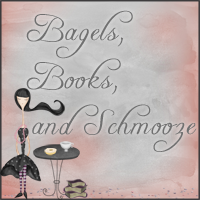






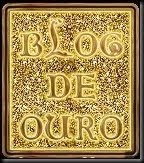

.jpeg)

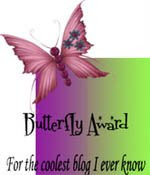

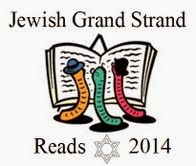

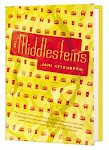



1 comment:
that's a fascinating article. thanks for posting it.
Post a Comment